Mushkin Reactor 1TB SSD Review
by Kristian Vättö on February 9, 2015 11:32 AM EST- Posted in
- Storage
- SSDs
- Mushkin
- Silicon Motion
- SM2246EN
- Reactor
- Micron 16nm
Random Read/Write Speed
The four corners of SSD performance are as follows: random read, random write, sequential read and sequential write speed. Random accesses are generally small in size, while sequential accesses tend to be larger and thus we have the four Iometer tests we use in all of our reviews.
Our first test writes 4KB in a completely random pattern over an 8GB space of the drive to simulate the sort of random access that you'd see on an OS drive (even this is more stressful than a normal desktop user would see). We perform three concurrent IOs and run the test for 3 minutes. The results reported are in average MB/s over the entire time.
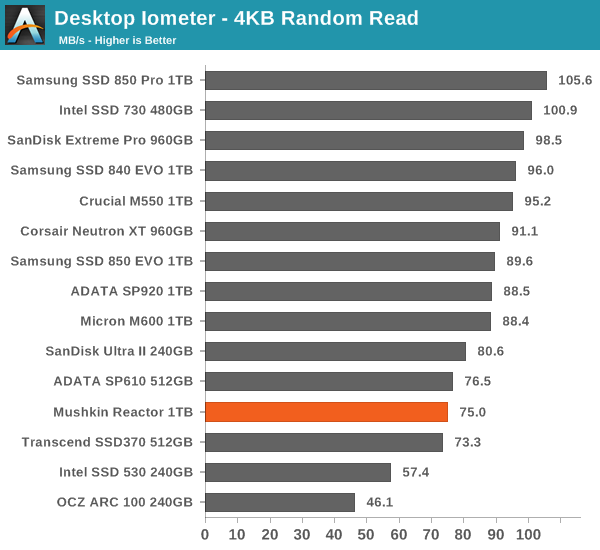
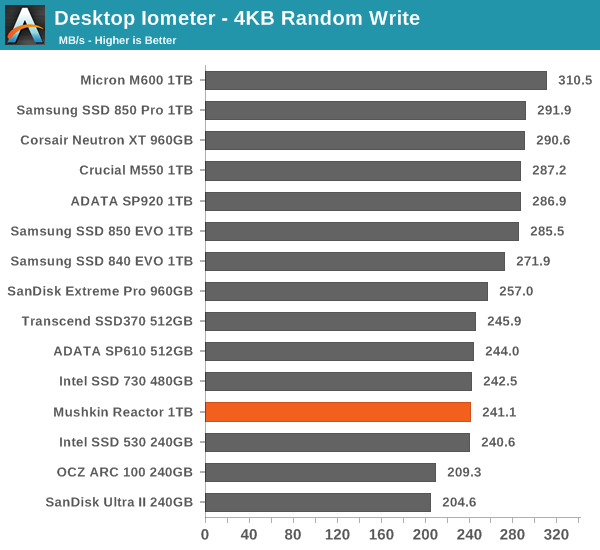
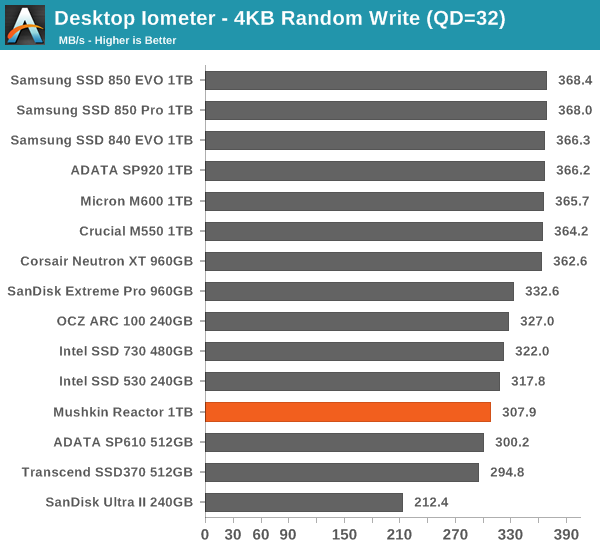
Random performance is typical to SM2246EN, which isn't bad but there are drives with better peak performance.
Sequential Read/Write Speed
To measure sequential performance we run a 1 minute long 128KB sequential test over the entire span of the drive at a queue depth of 1. The results reported are in average MB/s over the entire test length.
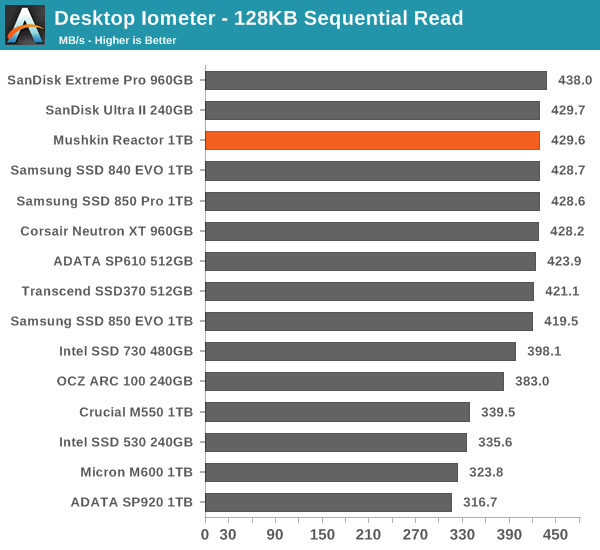
Sequential write performance is a bit lower compared to the rest of the SM2246EN based SSD, which I suspect is due to the additional capacity and the increased LBA tracking due to that.

AS-SSD Incompressible Sequential Read/Write Performance
The AS-SSD sequential benchmark uses incompressible data for all of its transfers. The result is a pretty big reduction in sequential write speed on SandForce based controllers, but most other controllers are unaffected.
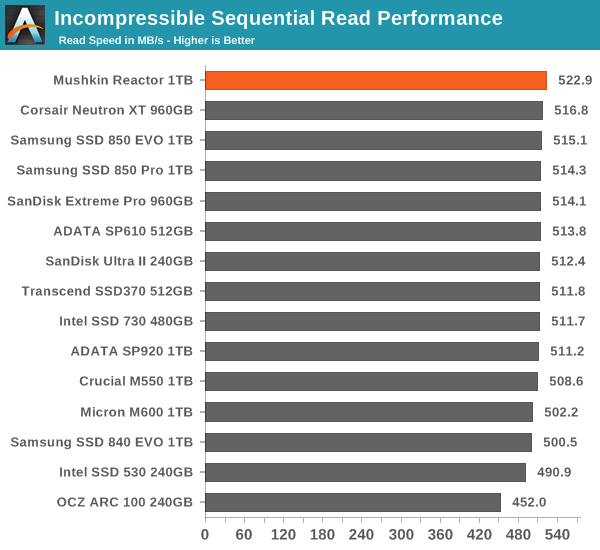
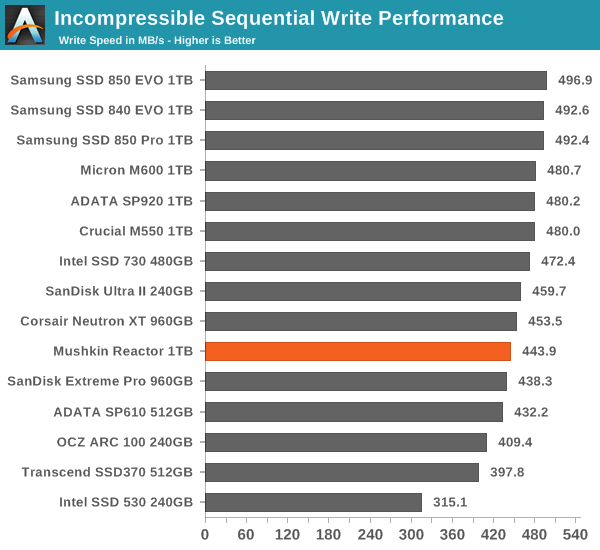










69 Comments
View All Comments
Hulk - Monday, February 9, 2015 - link
When it's written as 131GB writes/day for 3 years it seems like more than enough.But cell endurance of 144 writes seems really, really low.
hojnikb - Monday, February 9, 2015 - link
It doesnt work like that. 144TB for 1TB doesn't translate to 144 p/e flash. You have to factor in write amplification, which can be more than 1 on controller like this.Also conservative rating is nothing new with budget driver.
cm2187 - Friday, February 13, 2015 - link
Stupid question: has anyone any experience with SSD reliability over time. I.e. is it reliable to store static data 3-5y+? Or does the 3y (or 5y) guarantee also means the data should be migrated out after that period even if the number of writes has been low?hojnikb - Monday, February 9, 2015 - link
Its just a conservative rating for warranty purposes. Besides, other value drives are no better at this (evo is only "good" for 150TB).In reality, drives typically last many times the rated endurance.
DanNeely - Monday, February 9, 2015 - link
More importantly, it's set low to scare off enterprise customers who'd subject the drive to an order of magnitude more IO.toyotabedzrock - Monday, February 9, 2015 - link
So if the endurance is 144TB on a 1TB drive, they are predicting the nand can only take 144 writes?That is a bit scary for even home use. I wouldn't trust my data to that.
zepi - Monday, February 9, 2015 - link
There is not a single medium or drive out there that you should trust your data on. Only thing you can trust is redundancy.hojnikb - Monday, February 9, 2015 - link
No. Read my post above ^^TheinsanegamerN - Monday, February 9, 2015 - link
the 512GB crusial mx 100 endurance is only 72TB, yet people dont seem to be complaining. besides, as typical day to day use only accounts for maybe ~10GB or writes(3.65TB a year), the 144TB endurance will last far longer than the machine it is put in.Murloc - Monday, February 9, 2015 - link
yeah problem is that until it's broken, I'll keep moving it on to the next machine.But I write about 1 GB/week to the SSD so I should be safe, unless windows does a lot of that in the background, I don't know, I just deactivated all the bad stuff I read about.